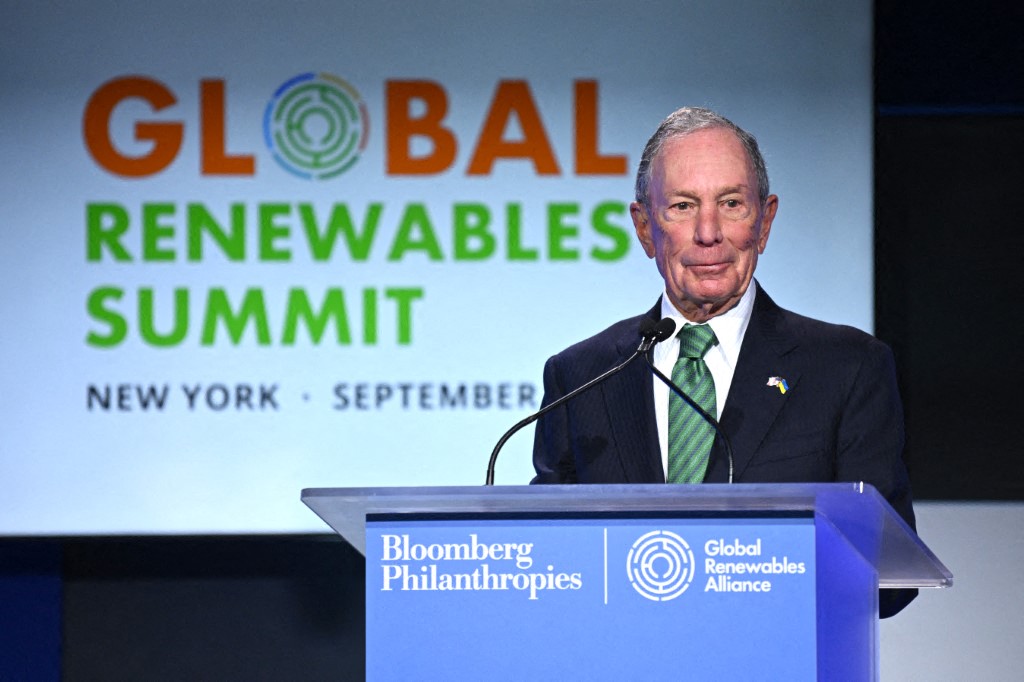
WASHINGTON - Former New York mayor Michael Bloomberg's philanthropy and other US funders said on Thursday they will cover US financial obligations to the UN climate framework after President Donald Trump called for the US to withdraw - for a second time - from the Paris climate agreement.
Bloomberg, a media billionaire who also serves as a UN special envoy on climate change, announced Bloomberg Philanthropies will once again cover the amount of money the US owes each years to the United Nations Framework Convention on Climate Change and ensure the US meets its emissions reporting obligations to the body despite the pullback from global climate diplomacy under Trump.
Key quote
“From 2017 to 2020, during a period of federal inaction, cities, states, businesses, and the public rose to the challenge to uphold our nation’s commitments—and now, we are ready to do it again,” said Bloomberg, who added that his organization also invests in supporting local leaders, bolstering data to track emissions and building coalitions across public and private sectors to carry on US climate action.
Why it matters
Trump said he would move to withdraw the US from the Paris climate agreement and end all of the country's international climate financial commitments in one of his first executive orders on Monday. To fill the void, a number of US states, cities and businesses committed to continue to achieve Paris climate goals.
Key numbers
The US paid its 7.2 million euro ($7.4 million) required contribution to the UNFCCC secretariat that for 2024, and also paid off a 3.4 million euro arrears for 2010-2023.
READ MORE: Brazil expresses concern over Trump's environmental policy rollbacks
The secretariat, set up under the 1992 UNFCCC treaty, is the world's key body for coordinating international efforts to reduce climate-warming emissions and staging summits where countries can hold one another accountable. It is experiencing a severe budget shortfall, according to a Reuters analysis of documents from the world body.



